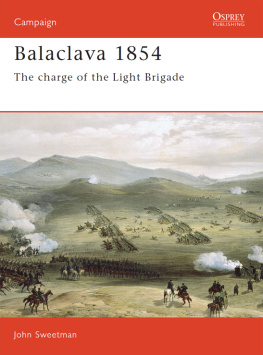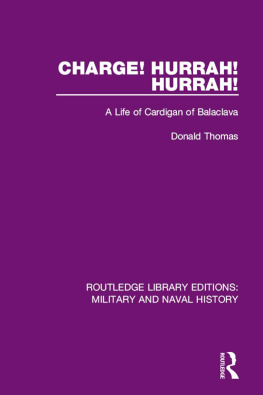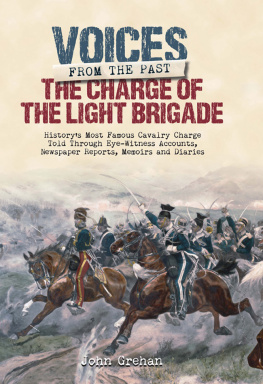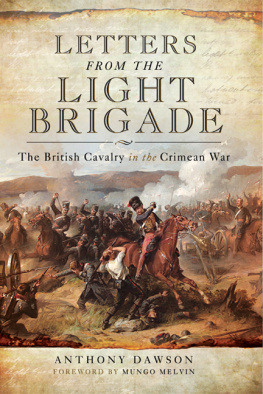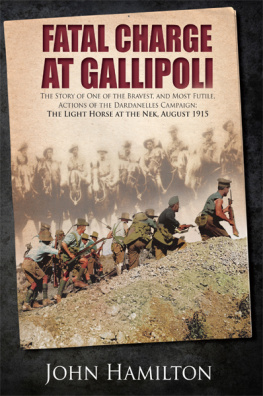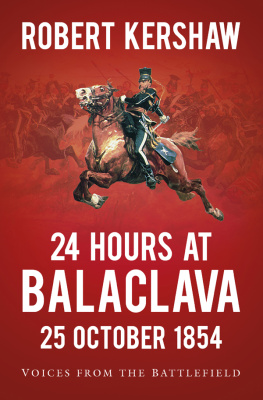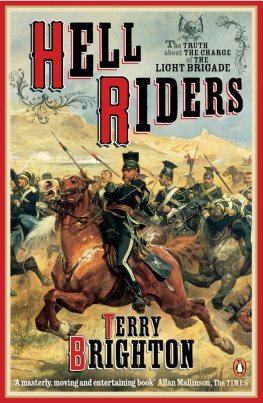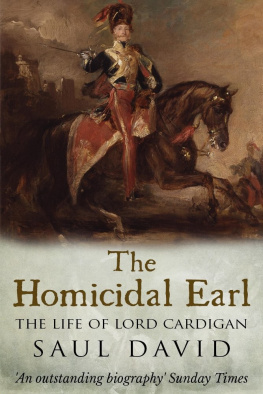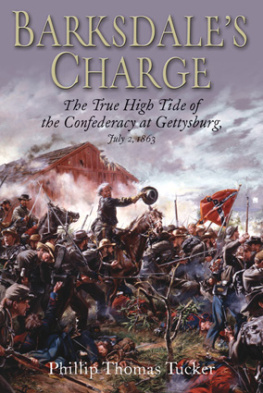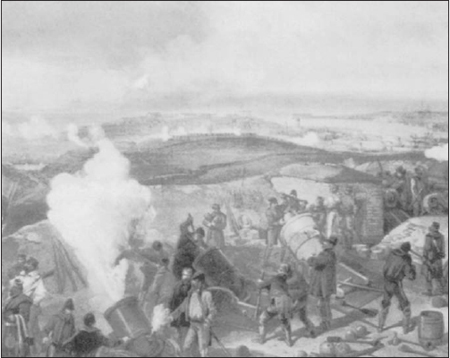Campaign 6
Balaclava 1854
The charge of the Light Brigade
John Sweetman
Series editor Lee Johnson Consultant editor David G Chandler
CONTENTS
PREPARATION: ADVANCE TO BALACLAVA
On 14 September 1854, troops of a British Expeditionary Force, led by Lord FitzRoy Raglan, began to land on the shores of the Crimean peninsula at Calamita Bay, 32 miles north of their ultimate objective, the Russian naval port of Sevastopol. Ahead lay eighteen months of unexpected misery for those lucky enough to survive. A short punitive campaign, culminating in swift seizure of Sevastopol, would prove just a pipedream.
Origins of the War
There were long-standing reasons for the war in which Raglans army had become involved. Britain feared that Russia would overrun the declining Turkish Empire, which sprawled both sides of the Bosphorus Straits into Asia Minor and southeastern Europe. Since the eighteenth century, successive tsars had expanded south into the Ukraine and Crimea, and further east into the Caucasus. They threatened to crush Turkey in a powerful vice. However, the Caucasus region, hilly and sparsely populated, presented formidable military problems.
The Balkans, in south-eastern Europe below the River Danube where it flows into the Black Sea, were a different proposition. The nationalities there were not Slavonic but were mostly Christian. Russia felt a particular affinity to them. Establishing a religious protectorship over Turkeys fourteen million Balkan subjects thus became a major aim of the Tsar. That this would allow a degree of political influence in Turkey was an undeniable bonus, for Russia harboured one burning ambition control of the Bosphorus and Dardanelles, thus allowing passage of warships from Sevastopol (her main Black Sea base) into the Mediterranean. To achieve this, the Tsar must dominate Turkey and, ideally, gain ascendancy in Constantinople.
The prospect of such a development thoroughly alarmed the British government. Nor was the danger pure fantasy. During the Greek War of Independence (18219), a Russian army had invaded the Balkans, advancing to within reach of Constantinople. Only pressure from other European powers had secured its withdrawal. During a prolonged dispute (183141) between Turkey and the ruler of Egypt, Mehemet Ali (who was nominally the Sultans vassal), Russia almost succeeded in gaining not only the religious influence that she sought in the Balkans but much wider power over the Turkish government politically in return for military assistance. Secretly, the Sultan agreed to close the Straits on Russian demand to all foreign warships. Learning about it, Britain took the lead in foiling this subterfuge.
Viewing Turkey as the sick man of Europe about to disintegrate and therefore ripe for picking Tsar Nicholas I would not rest, however. A minor religious dispute gave him an opportunity to try again. A quarrel broke out in 1852 over guardianship of holy places in Jerusalem (then Turkish), and Russia once more pressed her claim for protectorship over the Balkan Christians. British warships had persuaded Russia not to undermine Turkey in the past, so in June 1853 a fleet under Vice-Admiral Dundas sailed from Malta to the neighbourhood of the Dardanelles... for the protection of Turkey against an unprovoked attack and in defence of her independence. The Tsar was clearly unimpressed. Shortly afterwards, he sent troops across his southwestern border to occupy Moldavia and Wallachia (modern Romania, then two provinces of Turkey) to obtain without war... her [Russias] just demands. He was, the Tsar claimed, going to the defence of the Orthodox religion. Of that, neither Turkey nor other European powers were convinced.
A Turkish ultimatum to withdraw went unheeded, and on 23 October 1853 the Sultan at length declared war. The previous day, British and French warships had entered the Black Sea. Yet, at this stage, neither France nor Britain seriously considered an expeditionary force on land. Strong Turkish defences, considerably strengthened since Russias last advance southwards more than twenty years before, barred the enemys route along the Danube. In Britain there was neither the public enthusiasm nor the political will to get further embroiled. The Turks seemed in command of the situation. Dramatically, all of this changed with the massacre of 4,000 Turkish sailors in Sinope harbour 300 miles east of Constantinople on 30 November 1853 by a Russian naval squadron firing explosive shells rather than solid round shot. In the press and in enthusiastic public meetings the British government was urged to act positively: by deploying their fleets alone, the British and French had interfered only to betray unfortunate Turkey. Lord Aberdeens ministers were portrayed as the imbecile men, the minions of Russia: and a Punch cartoon showed the Prime Minister blackening the Tsars boots. The Westminster Review then touched a sensitive, commercial nerve, when it argued that our passage to India... [and] our commerce with all free nations were at risk.
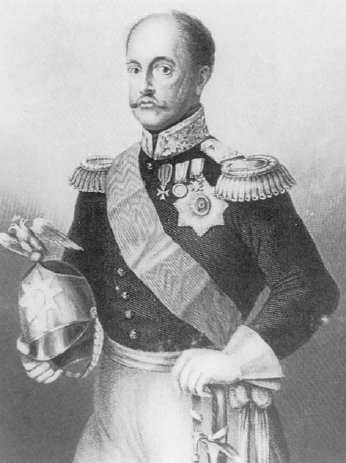
Nicholas I, Tsar of Russia. Grandson of Catherine the Great, who did much to expand Russian territory to the shores of the Black Sea, Nicholas was born in 1796 as Russias hold over the Crimea was being consolidated. From an early age interested in military matters, he held a series of army appointments rising to the rank of lieutenant-general before becoming tsar in 1825. Once on the throne, he showed particular interest in Turkey, which he described as the sick man of Europe. He was confident that the Allies would be defeated, even after they had landed in the Crimea. Upset by the defeat on the Alma, he nevertheless would not think of abandoning Sevastopol. Nicholas prompted Menshikov to attack across the Tchernaya, which led directly to the Battle of Balaclava. Eventually depressed by lack of Russian success, Nicholas dismissed Menshikov from his command in February 1855, only a few days before his own death. (David Paul)
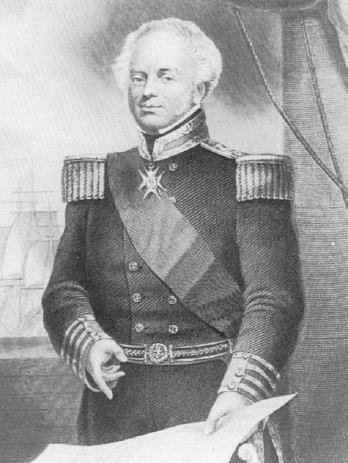
Vice-Admiral Sir James Dundas. Commander of the British fleet which was ordered first to the neighbourhood of the Dardanelles as a warning to Russia that her military action in the Balkans was unacceptable, and then in conjunction with a French fleet entered the Black Sea in January 1854. He subsequently sent a squadron to bombard Odessa, when a British vessel was fired on while evacuating diplomatic staff. Dundas commanded the fleet quite independently of the land force commander (Lord Raglan), and could only be asked for his help to support army operations. The fleet was ineffective against Sevastopol. Before the war ended, he was to be replaced in the Black Sea command by Sir Edmund Lyons. (David Paul)
More mindful than an ill-informed public about the difficulties of becoming entangled in war with such a large and powerful enemy, the British and French governments moved cautiously. On 4 January 1854, their fleets entered the Black Sea with the incredible orders (considering that neither country was yet at war with Russia) to attack Russian warships if they refused to return to port. Demands for action against Nicholas I (portrayed as that fiend in human form) built up, as diplomatic hopes of solving the crisis dimmed. On 27 February, in a final attempt to convince the Tsar that Britain was indeed serious, the Foreign Secretary issued an ultimatum to St. Petersburg. An undertaking to withdraw from Moldavia and Wallachia by 30 April must be forthcoming within six days: Refusal or silence... [would be] equivalent to a declaration of war. Nicholas I did not deign to react. So Britain entered what was then known as The War With Russia, but later became recognized as The Crimean War, for it was there that the bulk of the fighting was to occur.
Next page
